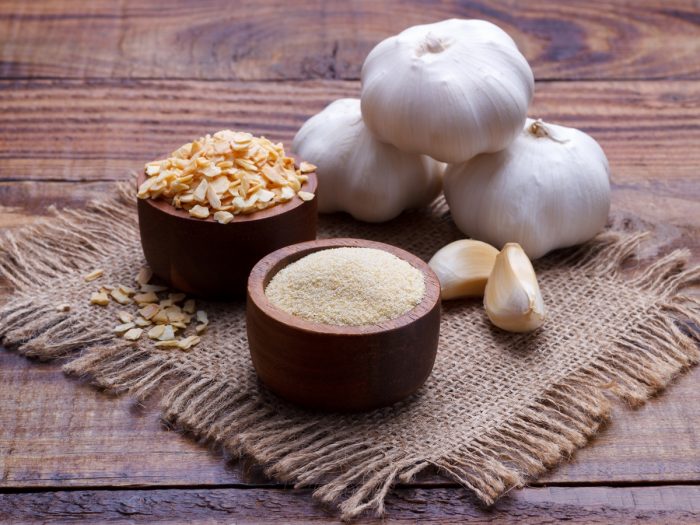Many amateur cooks have the same question – does garlic go bad? Before you use that old bulb of garlic you found in the back of your fridge, it is good to understand the shelf life of garlic and the signs that your garlic may have gone bad.
Does Garlic Go Bad?
Depending on how you store and prepare garlic, it can last for different amounts of time before going bad, or losing its desirable flavor. If you simply store garlic on your counter after getting it from the store or farmer’s market, your whole garlic bulb may retain its flavor and potency for anywhere from 3-6 months. If you are talking about individual cloves, the shelf life drops to roughly 1-2 months, as they will be exposed to more air. [1]
If you choose to store your garlic bulbs in the fridge, you can store them in their whole form for a few weeks, but this may prohibit air flow, which can cause your garlic to sprout or begin to rot. If you are going to store them in the refrigerator, be sure to put them in the crisper, where you will reduce humidity levels. If you remove the bulbs or cloves from their skin, you should store them in an airtight container in the fridge, where they will be good for up to 2-3 months. [2]

Garlic powder has a long shelf life and can be added to many dishes like soups and stir-fries. Photo Credit: Shutterstock
How to know if Garlic is Bad, Rotten or Spoiled?
When looking at a bulb of garlic, it can be difficult to tell whether it is rotten or spoiled, but there are a few clear indicators, including the appearance, texture, smell, and taste of your garlic, all of which can indicate whether it should still be used.
Appearance
If your garlic becomes discolored – typically a brown or dark yellow – it may be time to toss the bulbs and get some fresh ones, as this demonstrates rot that has extended all the way to the outer layers of skin on the cloves.
Texture
You want your garlic bulbs and cloves to be firm and compact. If the bulbs feel light or if certain parts can be squeezed, the garlic may have either reduced to dust or developed areas of mold or rot. Avoid using garlic that has soft spots. [3]
Smell
The smell of rotting vegetables is hard to miss, but given the potent smell of garlic, it can sometimes be masked. If you are curious whether your garlic is still good, take a deep whiff, and if anything smells off, avoid using it.
Taste
Older garlic tends to get a bit stronger and spicier in taste, but this isn’t necessarily a bad thing. Some people prefer this “aged” garlic, provided the bulbs haven’t begun to sprout. Even if they have, you can simply cut off the sprouted sections and use the unaffected parts of each bulb.
How to Store Garlic to Extend its Shelf Life?
The best ways to store garlic that can extend its shelf life include storing them in the refrigerator or freezer, removing the liquid with a dehydrator, storing them in flavored oil, roasting the bulbs or pickling them. The key to preventing your garlic from going bad is to avoid humidity, as this encourages sprouting. To the question “does garlic go bad?”, the answer is yes, but not if you’re careful! [4]
